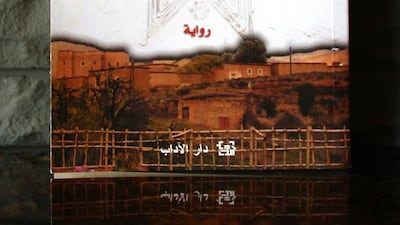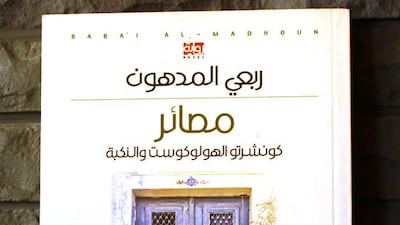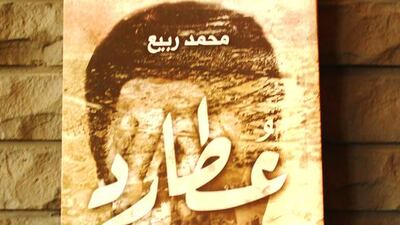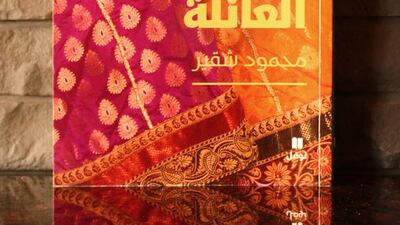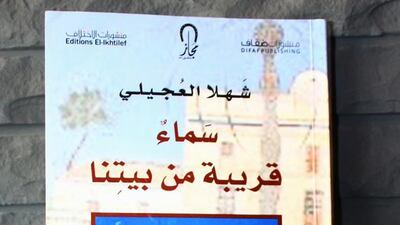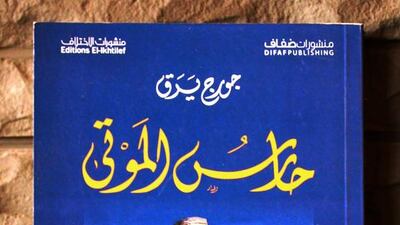The shortlist for the International Prize For Arabic Fiction features writers from Morocco, Palestine, Egypt, Lebanon and Syria – among them a debut novelist in his twenties and a 75-year-old veteran publishing his 45th book. The authors will all compete for the US$50,000 (Dh183,657) prize, which will be announced in Abu Dhabi in April. Ben East sheds light on the six candidates.
Numidia by Tareq Bakari
The story: A romantic tale with an interesting device – an orphan's troubled life in Morocco is told from the viewpoint of a former girlfriend, who wasn't his first love ... and isn't his last.
The author: Numidia is the first novel by Bakari, 28, the youngest novelist on the shortlist. Still, the Meknes-based Arabic-language teacher has been working towards his debut – which took three years to write and led him to a small village in the Rif Mountains – with a wide range of shorter creative pieces.
Destinies: Concerto of the Holocaust and the Nakba by Rabai Al-Madhoun
The story: Definitely the book on the shortlist with the most innovative structure, Destinies is written in four parts to mirror a concerto movement. Al-Madhoun uses the fertile ground of his own long experience to chart the Palestinian exodus from Israel in 1948, telling the story of life under occupation.
The author: The only writer on the shortlist to have been nominated before, Al-Madhoun, now in his seventies, is a Palestinian writer with some pedigree in newspapers and magazines (he's now a London-based editor), although Destinies is only his second novel. The Lady From Tel Aviv was translated into English in 2013, with The National praising its "lovely descriptions" and "classic dialogue". It won
Mercury by Mohamed Rabie
The story: Rabie takes the failure of the 2011 revolution in Egypt as a starting point in this intriguing future fantasy. In Mercury, the counter revolution has become a reality, as Cairo is riven by a struggle between an occupying power and a popular resistance.
The author: One of two thirty-somethings on the list, Rabie is everything the International Prize For Arabic Fiction wishes to encourage in the Arabic literary scene: he took part in Nadwa (IPAF's annual workshop) for young writers in 2012. The Egyptian had already published two books by then, but Mercury feels like a distillation of all his concerns in politics, fantasy and philosophy. You can read the first chapter in English at www.madamasr.com
Praise for the Women of the Family by Mahmoud Shukair
The story: Shukair has been researching the lives of a Bedouin Palestinian tribe who had moved from tents to stone houses near Jerusalem for some time. This work coalesced into the story of a section of 1950s Palestinian society who remained out of the spotlight and unwilling to give way to modernity – a tale of change and culture clash.
The author: Palestinian Shukair is the exact opposite of the young or debut novelists on this year's shortlist – incredibly Praise For the Women of the Family is his 45th book. It's a cause for some celebration that Shukair is still publishing stories shot through with joy, tragedy, the surreal and the everyday well into his mid-seventies. A collection of short fiction called Mordechai's Moustache and His Wife's Cats is available in English.
A Sky Close to our House by Shahla Ujayli
The story: Ujayli likes to concentrate on a more classical form of Arabic fiction writing, and A Sky Close to our House is the most historical of the novels on the list, chronicling the trials and tribulations of families in Amman, Jordan over the second half of the 19th century.
The author: The only woman on the shortlist – controversially – but like Mohamed Rabie, Ujayli has benefited from the Nadwa. 40 this year, she worked on A Sky Close to our House at the workshop.
Guard of the Dead by George Yaraq
The story: Another book dealing with cruelty and tragedy. The protagonist is a Lebanese hospital undertaker who begins to sell the gold teeth he finds in the mouths of his corpses. When Aabir is kidnapped, his past life unravels before him.
The author: Like many novelists in the Arab world, Yaraq has spent a long career writing and editing newspapers and cultural magazines – in his case, for Lebanese outlets. It took until 2013 for his first novel, Night, to be published, but Yaraq says he'd been thinking about Guard of the Dead since 1992 – indeed, some of the chapters had already been included in various newspapers. Critical acclaim gave him the confidence to finish it.
